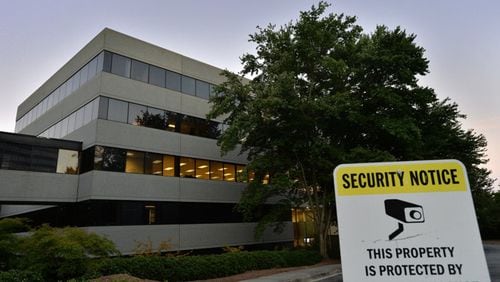When the VA launched the veterans crisis line call center in Atlanta last December it was touted as a critical part of a national system that would answer thousands of calls from distressed and suicidal veterans every day.
But in the rush to open the new center, VA executives seem to have overlooked an important facet of its operation: Adequate crisis training for the center itself. So, on the evening of Oct. 24, when an operator in the Atlanta center received a threat around 6:45 p.m. from a frequent caller, staff and leaders seemed confused and without a clear idea how to respond. The caller suggested active shooters were about to kill everyone in the building.
Call center officials first called VA police at the Atlanta VA Medical Center, who told them to call Chamblee police. When Chamblee officers arrived shortly after 8 p.m., they evacuated VA staff and shut the call center down for more than an hour. Police searched the building near Clairmont Road and I-85, guns drawn, but found no credible evidence of a threat.
As it turns out, the call was a hoax. But the incident showed that the center's leaders weren't equipped to vet potential threats and keep the center operational at the same time.
Such was not the case at the VA's other crisis call center in Canandaigua, N.Y., which also could have been the target of the caller's threats. It continued to operate and take calls while the credibility of the threat was evaluated, according to the VA's investigation of the incident.
In Atlanta, VA staff felt shaken and untrained to handle what should have been an anticipated situation for a mental health crisis line.
"The recent events of the crisis line is just another illustration of mismanagement by (VA) member services leadership," said Scott Davis, a VA whistleblower who works in the Health Eligibility Center building which houses the crisis center. "The sentiment is there is nobody running the building. The building is in just a total state of chaos."
An internal investigation revealed that the staff was never in danger and the caller was no where close to Georgia or New York, but time zones away in New Mexico.
Matthew A. Miller, the crisis line director, in an Oct. 25 email to staff described the threat as "of questionable credibility at the time" and said the center "must now take this opportunity to learn and ensure our readiness and safety in the future."
One problem was the Atlanta facility had no permanent building coordinator to help oversee security for a staff that handles some of the most volatile calls that come into the VA system. A VA spokesman said a building coordinator was "recently hired," but would not say when the hiring occurred. He said the premise that the facility was without a crisis plan is incorrect.
"We erred on the side of caution, as we take employee and Veteran safety seriously," said spokesman Curt Cashour. "Upon the advice of local law enforcement, we evacuated the facility."
Cashour said an "active threat plan existed and was in place." He acknowledged that VA officials met with employees and law enforcement officials after the incident to "identify areas for improvement."
Miller said in his Oct. 25 email that the crisis line leadership would spend the rest of last week meeting and determining "how we can learn from this experience and improve our processes for the future."







